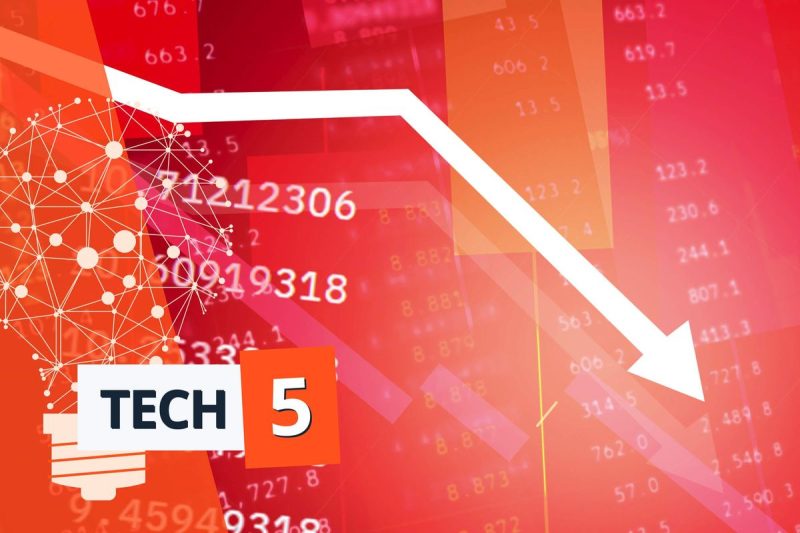In the world of finance and investing, the fear of a recession can have a significant impact on market behavior. As economic indicators fluctuate and uncertainty looms, investors often turn to panic selling, causing a chain reaction that can lead to a market downturn. One area that frequently experiences these effects is the technology sector, as seen in recent years. Let’s delve into five specific recession fears that can trigger panic selling and result in a tech selloff.
1. **Declining Consumer Spending**: In times of economic uncertainty, consumers tend to tighten their purse strings and reduce spending on non-essential items, such as the latest tech gadgets. This decline in consumer demand can directly affect tech companies’ revenue and profitability, leading investors to anticipate weaker performance and driving them to sell off their tech holdings.
2. **Trade War Impact**: International trade tensions can have a ripple effect on the technology sector, as many tech companies rely on global supply chains and markets. Tariffs and trade restrictions can disrupt the flow of goods and services, increase costs, and reduce profitability for tech firms. Investors fear the impact of a prolonged trade war on tech stocks, prompting them to sell off before the situation worsens.
3. **Rising Interest Rates**: The tech sector is particularly sensitive to changes in interest rates, as higher rates can increase borrowing costs for companies and dampen consumer spending. When central banks signal a shift towards tightening monetary policy, investors may interpret this as a sign of an impending economic slowdown. This anticipation can trigger panic selling of tech stocks, as investors seek to minimize their exposure to potential risks.
4. **Regulatory Challenges**: Increased scrutiny and regulatory challenges facing the tech industry can also contribute to a selloff. Issues related to data privacy, antitrust concerns, and government intervention can create uncertainty for tech companies and their investors. Fears of stricter regulations or legal penalties can drive investors to sell off tech stocks, fearing the negative impact on profitability and growth prospects.
5. **Economic Data Disappointments**: Key economic data releases, such as GDP growth, unemployment rates, and corporate earnings, can influence investor sentiment towards the tech sector. Disappointing economic indicators can fuel fears of an impending recession, prompting investors to sell off tech stocks in anticipation of lower revenues and profitability. Market reactions to economic data can exacerbate volatility and trigger a tech selloff if the outlook appears bleak.
In conclusion, the tech sector is not immune to the broader market forces that drive panic selling during times of recession fears. Investors closely monitor a range of economic indicators, geopolitical events, and regulatory developments that can impact the performance of tech stocks. Understanding the specific recession fears that can kick panic selling into overdrive and trigger a tech selloff is crucial for investors to navigate market volatility and make informed decisions about their tech investments.




























